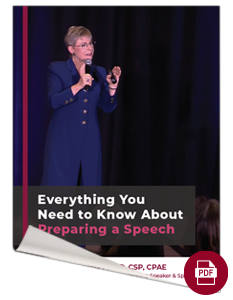Appropriate fees for business executives seeking engagements
I am often asked what fee CEO’s and business executives should charge. Many have expertise, or have run a good business, and would like to gain national media attention and exposure. Recently I was asked, ” Is there a national list or organization that posts that type of info? ”
ANSWER: There is no list. People get paid for what they say, how and where they say it, and sometimes just for who they are. Speakers can earn anything from $25 on up to $100,000 for the top celebrity of the moment. Your best bet is to check the websites of similarly qualified CEOs to learn what they are currently charging.
However, since many top business people are skilled speakers, willing to promote their organizations and agendas without being paid, you or your CEO may not be offered any remuneration at all unless he/she is a big star in his/her field or has unique, leading-edge information that the audience can’t get anywhere else.
Remember, though, that there is no such thing as a “free speech.” If, by speaking at an industry meeting, you or your CEO gets positive PR for your organization and adds to personal reputation, that may actually be worth a lot more than a $1,000 speaking fee.
A lawyer once came to me for speech coaching. He was already a pretty good speaker and much in demand. “I am speaking for nothing,” he said, “but I think I should start charging.”
“Do your speeches result in new clients for your firm?” I asked. He said they did.
“And what is the average yearly income from a new client?” He said it was between $10,000 and $100,000. “Then, why on earth would you want to compete for $5,000 speaking engagements and reduce the number of contacts you can make?” His ego was getting in the way of his purpose.
Speaking at industry meetings where you get business is ultimately more profitable than trying to compete for fees with professional speakers who have spent their lives perfecting their messages.
If you or your CEO still wants to charge, decide your/his/her time is worth to your organization. If it takes a day for preparation, travel, and giving a speech, what should the hourly fee be? Then double that amount! In general, you are not considered a professional speaker if you charge less than $2,500. However, some groups you may want to reach might think $250 is a large honorarium. Weigh the relationships that can be developed against the fee itself, and you may decide that “free speech” is more lucrative than any speaking fee.
Read More...

